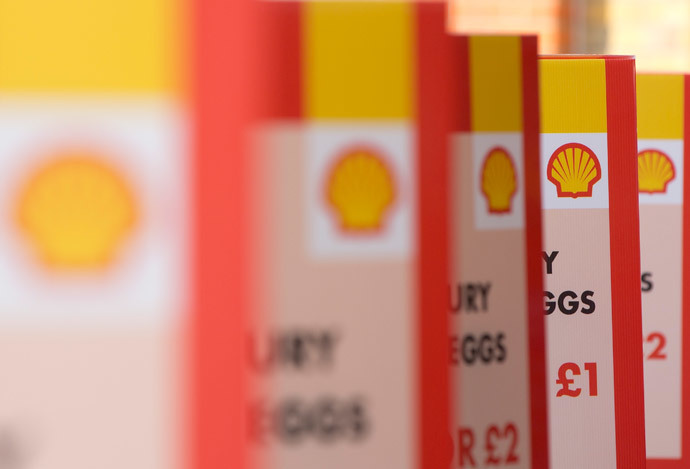Pyrrhic victory for whistleblowers on Transatlantic Trade Agreement

Unbeknownst to the wider world, two enormous trade deals have been in the works for the past several years.
Shrouded in secrecy, talks on these deals, which will cover over half of world trade in goods and services and which include such sensitive topics as intellectual property rights, flew under just about everyone’s radar.
That is until WikiLeaks revealed part of the first deal, the Trans-Pacific Partnership, late last year. Their example was quickly followed by three German MEPs (Ska Keller, Rebecca Harms and Sven Giegold) who leaked the EU’s position paper on the second deal, the Transatlantic Trade and Investment Partnership last month.
Keeping these two agreements apart, not to mention reconciling them with the rest of the world trade regime, can be difficult. The Transatlantic Trade and Investment Partnership is being negotiated between the United States, the European Union and its member states, and is usually abbreviated ‘TTIP’, although it’s sometimes also called ‘TAFTA’ (for Transatlantic Free Trade Agreement). Negotiations started in 2013, although pre-negotiation talks have probably been ongoing for much longer.
The Trans-Pacific Partnership is being negotiated between nations of the Pacific Rim: Canada, the US, Japan, Australia, New Zealand, Chile, Vietnam, Peru, Mexico, Singapore, South Korea, Malaysia, Taiwan and Brunei. Negotiations started in 2010, and this agreement is usually abbreviated ‘TTP’.
What is the purpose of these agreements? To lower barriers to trade, a process that usually involves getting rid of tariffs and harmonizing industry standards. That can include anything from safety standards on cars, to agreeing on what counts as a sardine, to toughening up copyright and patent protection.
Now, some of you might remember that we already have an agreement that is supposed to deal with these things: the World Trade Organization Agreement which entered into force in 1995. To put it mildly, the World Trade Organization has not proven terribly popular. In fact, the organization has mainly been used as a vehicle to force open vulnerable economies and make the rich richer and the poor poorer around the world. Thus, unsurprisingly, talks on further liberalization measures within the WTO’s global framework have stalled.

The Doha Round of negotiations has been ongoing since 2001 with no end in sight, mainly due to sharp disagreements on agriculture and intellectual property between developed and developing countries.
Hence, the confusingly abbreviated TTIP and TTP, which are being negotiated by more exclusive sets of countries whose leaders happen to (mainly) agree that it would be a good idea to go much further down the trade liberalization rabbit hole than even the hugely unpopular WTO has. One of the most concerning ways they want to do this is by seeking to institutionalize what is known as investor-state dispute settlement (ISDS) within the agreements’ ramework.
Suing in private
Under the WTO rules, states sue other states. This is pretty standard in international law, where if an individual or entity suffers injury from another state, they have to persuade their home state to take the case to court on their behalf through a legal custom known as exercising diplomatic protection. It means that ultimately an individual’s interests on the international plane are subordinated to his state’s collective interests.
However, there is an alternative method of settling international disputes and that is state-to-company private arbitration, which tends to occur on an ad hoc basis in more limited settings. For example, when a state and a company want to do business together, say in developing an oilfield, they often draw up a contract. If a country breaks this contract (which happens from time to time, especially when there has been a change of government), the private company seeks to be compensated for damages by pursuing an arbitration settlement before what is basically a voluntary mini-court.
This is a form of investor-state dispute settlement (the term ‘investor’ is understood very widely under international law), but it is limited to the contract’s subject matter, so the consequences of entering into the contract are easier for everyone to foresee.

It is this latter path that the TTIP and TTP are pursuing, but in much more expanded form, because they propose clauses that will create ISDS mechanisms. Unlike individual deals on developing specific natural resources, the TTIP and TTP covers a wide range of what are considered to be investments in the states. Therefore, incorporating these clauses would mean that if a country later makes a law that contravenes the terms of the TTIP or TTP, for example, in the interests of protecting public health, that a company that suffers damages (for example, because they have been making a product that contravenes the new rule) can sue the state for compliance with the treaty, bypassing the normal court system. In other words, foreign companies are placed above the law of the host State through these agreements.
If this sounds like far-fetched paranoia, consider that the citizens of Canada, the US and Mexico are all already living under just such a regime, thanks to NAFTA (the North American Free Trade Agreement).
To give but one example, in 1997, two years after NAFTA was concluded, the Canadian government banned the use of MMT in gasoline produced for cars and trucks, due to evidence that it might cause nerve damage when inhaled. The evidence was not 100 percent clear, but the government felt that the risk justified the ban. Ethyl Corporation, an American company and the sole producer of the MMT used in Canadian gasoline, brought a case against the Canadian government alleging that the ban indirectly expropriated it by reducing the value of its manufacturing plant. Canada was forced to repeal the ban, and MMT went straight back into Canadian gasoline for several years before finally being phased out when car manufacturers protested that it harmed their engines.
Voila. ISDS at work.
The EU argues that under its proposal, companies will only be able to sue for compensation, not to repeal legislation, but this could be expensive, and might deter adequate regulation in the future (in addition to the repeal, Canada had to shell out $19 million to Ethyl Corp in compensation). The EU has made some vague noises on the topic of curtailing companies’ ability to claim indirect expropriation, but nothing that amounts to a solid guarantee that the EU would not experience its own ‘Ethyl Corp’ moment.
Of course, proponents of investor-state dispute settlement will argue that it is necessary to protect fragile businesses from the fickle vicissitudes of people who object to something as minor as the substantiated risk of brain damage. The argument would be that we need to unhook the economy from politics in order to create enough stability for it to thrive. This fear-based argument is a red herring on many different levels.

Big business making a killing
Most people are not quite au fait with just how profitable big business is, because the numbers are difficult for the mere mortal to comprehend. Exxon Mobil, 2012’s most profitable company, made nearly $45 billion in profits, while Royal Dutch Shell came in at $30 billion, Apple at $26 billion, and British Petroleum (of Gulf of Mexico oil spill fame) at $25 billion. To put that into perspective, Exxon Mobil makes more profit every year than the national GDP of countries like Kenya, Iceland, Serbia, Estonia, Bolivia, and Brunei, with tech companies like Apple not far behind. Generated income is even higher. Exxon Mobil generated over $450 billion in revenue in 2012, more than the GDP of Austria, South Africa or the United Arab Emirates and over the half the GDP of Saudi Arabia.
These companies have been in business for decades, in some cases for over a century, without being able to use ISDS on an institutionalized trade-deal level, and yet they somehow managed to eke out a profit equivalent to the annual output of a mid-sized nation. Thus the answer to the question, ‘will these companies continue to do business if they don’t receive this protection?’ is a resounding yes. They are literally making a killing and the countries involved in the TTP and TTIP negotiations are present extremely safe investments.
Contrary to corporate propaganda, most countries are more than able to determine the parameters under which they would like to do business. Case in point: all but two oil companies (the aforementioned Exxon Mobil and Conoco Phillips) chose to remain in Venezuela, following Hugo Chavez’s partial re-nationalization of certain oil and gas projects in 2008.
Since there is really no good reason to increase the use ISDS, it is perhaps unsurprising that some European politicians have expressed doubt following the leaks, first among them Germany’s Economic Minister Sigmar Gabriel (SPD). In a rare bow to pressure, the EU launched a public consultation process on ISDS last Thursday, by providing a web-form that the public can use to submit their thoughts on the TTIP and ISDS in particular.
Freely, this is a Pyrrhic victory, because while industry lobbyists were afforded 119 meetings with the European Commission during negotiations, the general public is getting a little questionnaire, surrounded by swathes of the EU’s own vague promotional material. No champagne, no caviar, and the EU suggests that it will take you 90 minutes to correctly fill it out. However, should you fail to take this time, it will later be said that ‘people just weren’t interested’ and you will be welcomed to a world of more ISDS.
In revealing these hitherto secret documents, WikiLeaks and the German MEPs have bought citizens the chance to crack open their own bottle of bubbly and engage in some armchair lobbying of their own.
The statements, views and opinions expressed in this column are solely those of the author and do not necessarily represent those of RT.
The statements, views and opinions expressed in this column are solely those of the author and do not necessarily represent those of RT.













